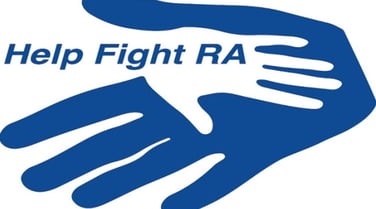 Rheumatoid arthritis is the most common form of autoimmune arthritis. It causes joints to become painful, tender, swollen, and stiff.
Rheumatoid arthritis is the most common form of autoimmune arthritis. It causes joints to become painful, tender, swollen, and stiff.
People with rheumatoid arthritis (RA) often have more than one joint affected by the condition. The same two joints on opposite sides of the body are frequently involved with RA. RA impacts small joints, which are found in the wrists, hands, and feet.
Although joint problems are the first things people recognize when it comes to arthritis, the disease of rheumatoid arthritis can impact other parts of the body as well. With RA, eyes become dry, painful, and red, the mouth becomes dry and gums are more easily irritated or infected. Skin can develop small lumps over bony areas known as rheumatoid nodules. Blood vessels can become inflamed, potentially causing nerve and skin damage. The number of red blood cells can drop and the lungs can become inflamed and scarred, causing shortness of breath.
What Causes Rheumatoid Arthritis?
As an autoimmune disease, rheumatoid arthritis is caused by a misdirected immune system. With RA, the immune system attacks the body’s small joints. The precise reasons why this happens are unknown. Still, research suggests that the cause of rheumatoid arthritis is related to hormones, genes, and environmental factors, including female hormones (70 percent of RA sufferers are women), obesity, infectious agents like bacteria and viruses, and your physical and emotional response to stress and trauma.
Some other environmental factors may play a part in determining who gets RA, too, such as air pollution cigarette smoke exposure, insecticide exposure, and exposure to mineral oil or silica in the workplace.
Noteworthy: 8 Signs You Should Stop Exercising Now
Noteworthy: What Is Wellness & Why Is It Important
Noteworthy: Vitamin B12 Deficiency: A Silent Epidemic With Serious Consequences
Does Exercise Help With Rheumatoid Arthritis?
Exercise is considered the no. 1 non-drug treatment for people suffering from rheumatoid arthritis. Exercise strengthens bones and muscles, delays joint replacement, lowers blood pressure, and improves movement and well-being.
Low-impact aerobics are the best for treating rheumatoid arthritis. Other activities such as basketball and running on pavement put too much stress on the joints, lead to flare-ups, increase the wear and tear on joints, and make daily life more painful and difficult. Start by choosing an exercise that fits you, such as stair climbing, walking on the treadmill, or dancing.

